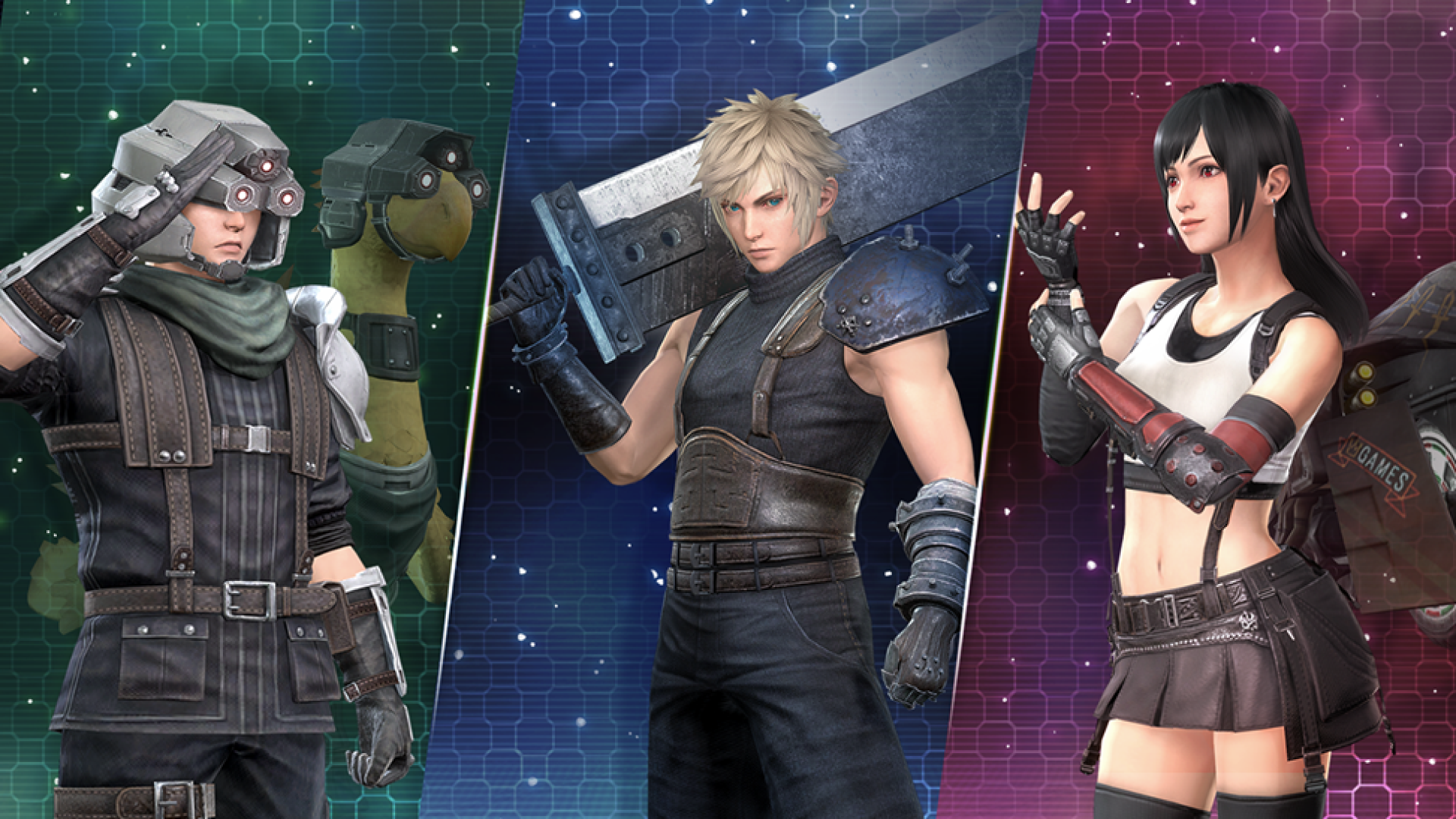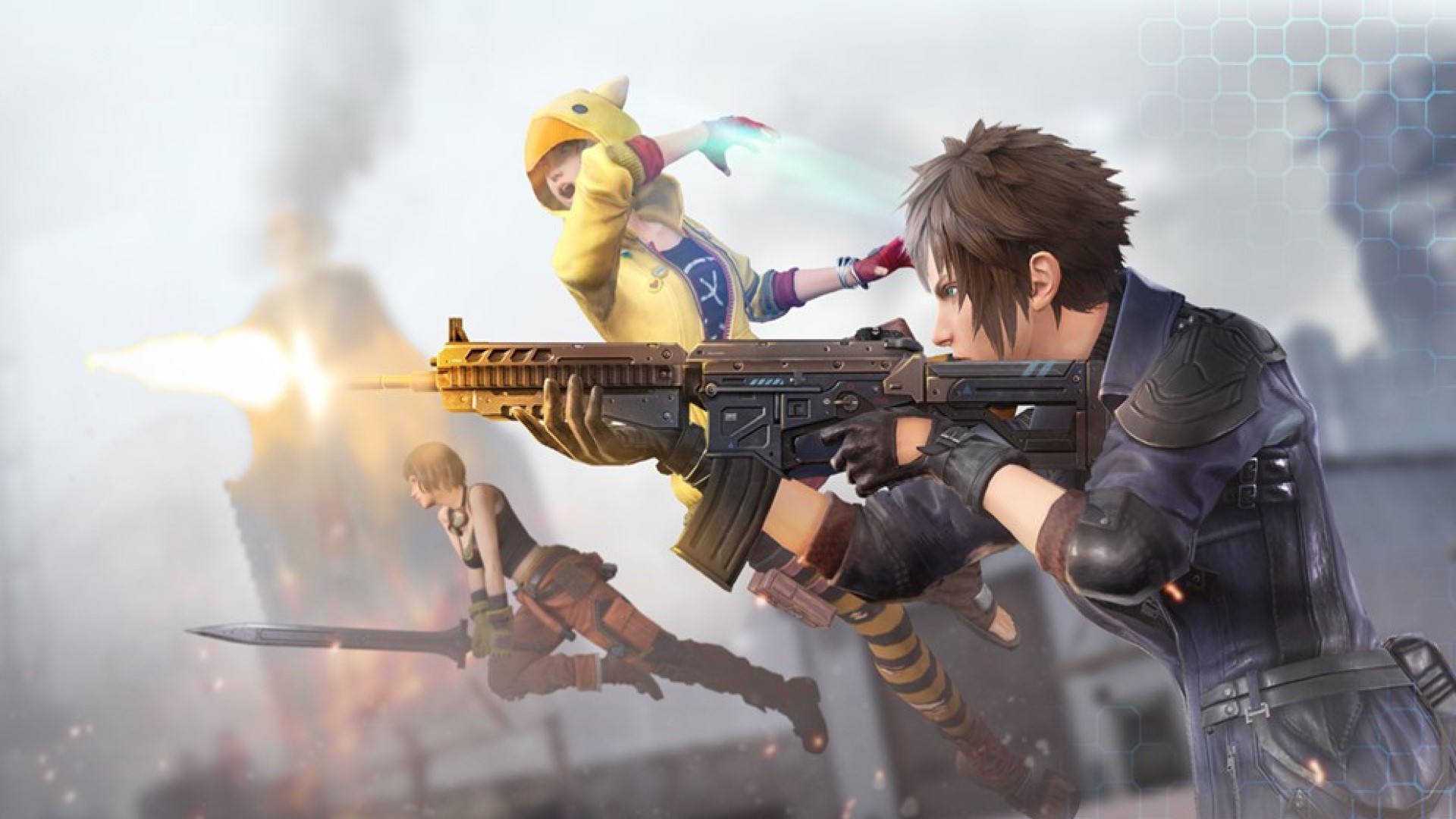Square should loot the corpse of its canceled Final Fantasy game
Soldier on

Sign up for breaking news, reviews, opinion, top tech deals, and more.
You are now subscribed
Your newsletter sign-up was successful
Pour one out for fans of Final Fantasy VII The First Soldier, the free-to-play mobile-based battle royale from Square Enix is set to shut down on January 11, 2023. Support for non-English languages is due to end on October 31, meaning that, from then on, only English text will be available to players.
Originally launched on November 17, 2021, the ambitious battle royale game served as a prequel to Final Fantasy 7 Remake, showing off the early days of the nefarious Shinra Corporation's super soldier program as seen in the Final Fantasy 7 prequel, Crisis Core - which is a getting a much-deserved remaster.
In First Soldier, you take on the role of a Shinra operative, carrying out an elite special forces training program through the medium of Fortnite-esque battle royale combats. However, with the addition of spells, a class system, and melee combat, First Soldier did offer something of a departure from the standard formula.
Square Enix announced that "despite all our efforts to bring you regular updates, we haven't been able to deliver the experience that we were hoping to and that you all deserve" (via Gematsu). I didn't play First Soldier, its battle royale leanings put me off, but I never like to see a game shut down. However, Square Enix may have a silver lining in terms of the lessons it can take from the First Soldier's demise.
The price of freedom

First Soldier was ambitious in many respects and attempted to do more than just transplant the PUBG and Fortnite formula into the world of Final Fantasy 7. Though the gradually shrinking maps and vehicle spawns of more traditional Battle Royale games were alive and well.
Though First Soldier leans heavily on the traditional third-person shooting you can expect in a mobile battle royale game, it also offers some big changes to the formula. In First Soldier, you can carry up to three Materia orbs, allowing you to spend mana to cast spells. Poison spells, healing spells, and crowd control spells are all potential tools in your arsenal. You can also choose a class that would give you access to a unique special ability reminiscent of Overwatch 2 or Valorant. This supplements the gunplay with a welcome extra layer of strategy.
Unfortunately, this ambition was also part of what led to the game's downfall. Though delightful on paper, First Soldier's extra layers of complexity made it clunky and unwieldy to play on mobile. Simply put, thanks to its many extra features, the game just had too many buttons for a small touch screen to handle sensibly.
Sign up for breaking news, reviews, opinion, top tech deals, and more.

This is, I suspect, why it was never able to become the PUBG or the Fortnite of the Final Fantasy series. First Soldier had a lot of promise, but, the limitations of the touch screen got in the way of the game's ambitions.
Perhaps, the lesson here is that mobile platforms aren't necessarily the best place for games with complex control schemes and that First Soldier might have been better suited to a PC or console release. Conversely, more traditional, turn-based RPGs from Square Enix have done better on mobile because of the relatively simple control scheme.
Classics like Final Fantasy Tactics and even Final Fantasy 7 itself can now fit in the palm of your hand, proving that mobile gaming has a lot to offer RPG fans. If Square Enix decided to use the shortcomings of First Soldier as an excuse to pivot back towards more traditional RPGs on mobile, who knows what it could accomplish?

An editor and freelance journalist, Cat Bussell has been writing about video games for more than four years and, frankly, she’s developed a taste for it. As seen on TechRadar, Technopedia, The Gamer, Wargamer, and SUPERJUMP, Cat’s reviews, features, and guides are lovingly curated for your reading pleasure.
A Cambridge graduate, recovering bartender, and Cloud Strife enjoyer, Cat’s foremost mission is to bring you the best coverage she can, whether that’s through helpful guides, even-handed reviews, or thought-provoking features. She’s interviewed indie darlings, triple-A greats, and legendary voice actors, all to help you get closer to the action. When she’s not writing, Cat can be found sticking her neck into a fresh RPG or running yet another Dungeons & Dragons game.